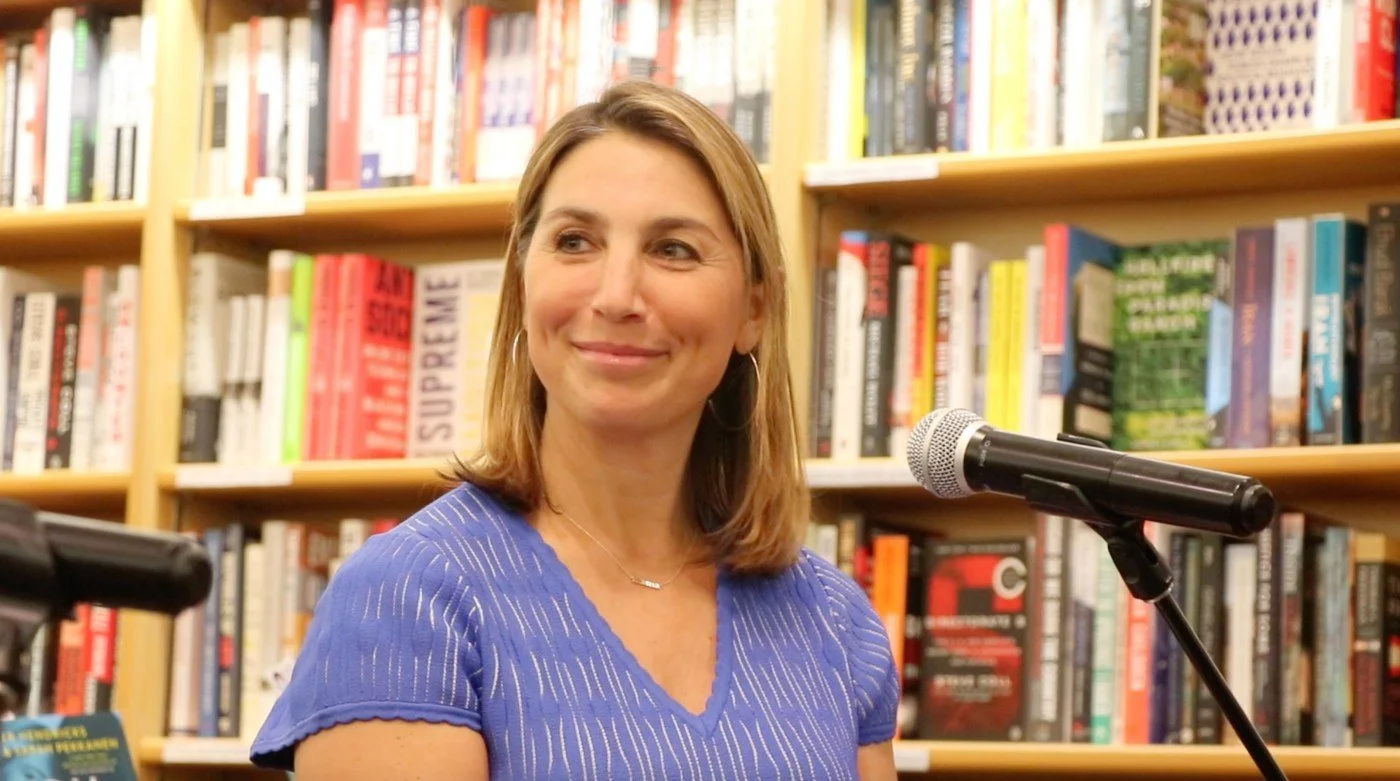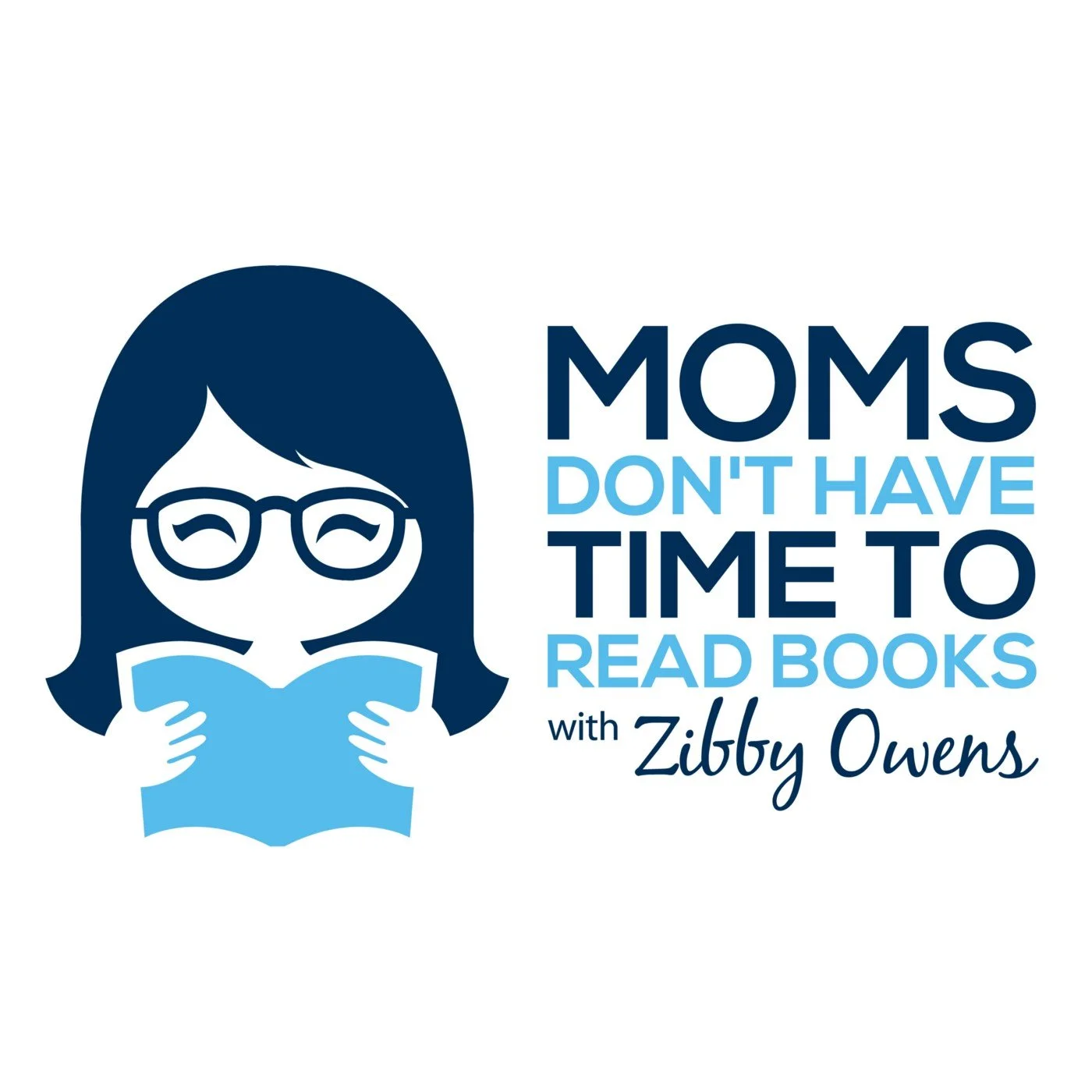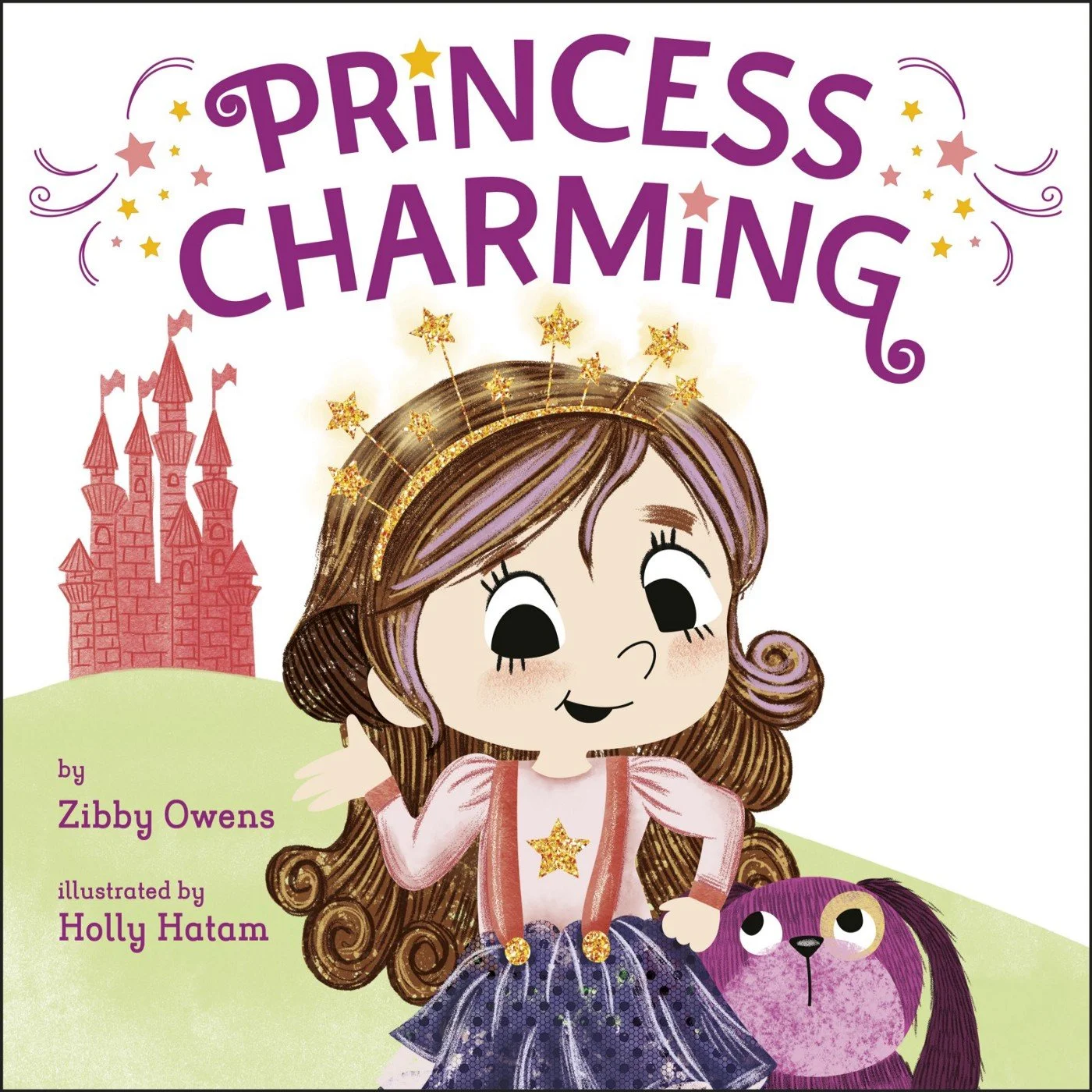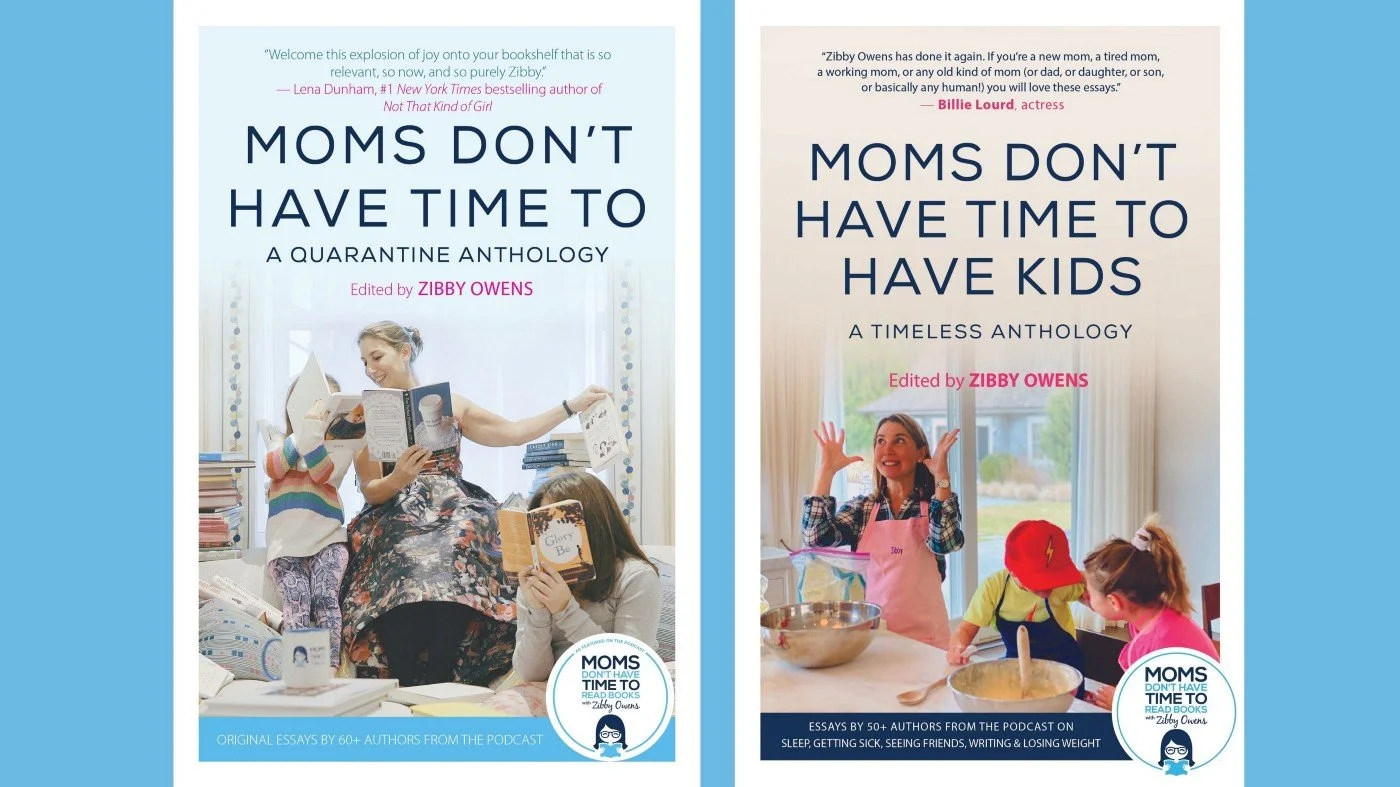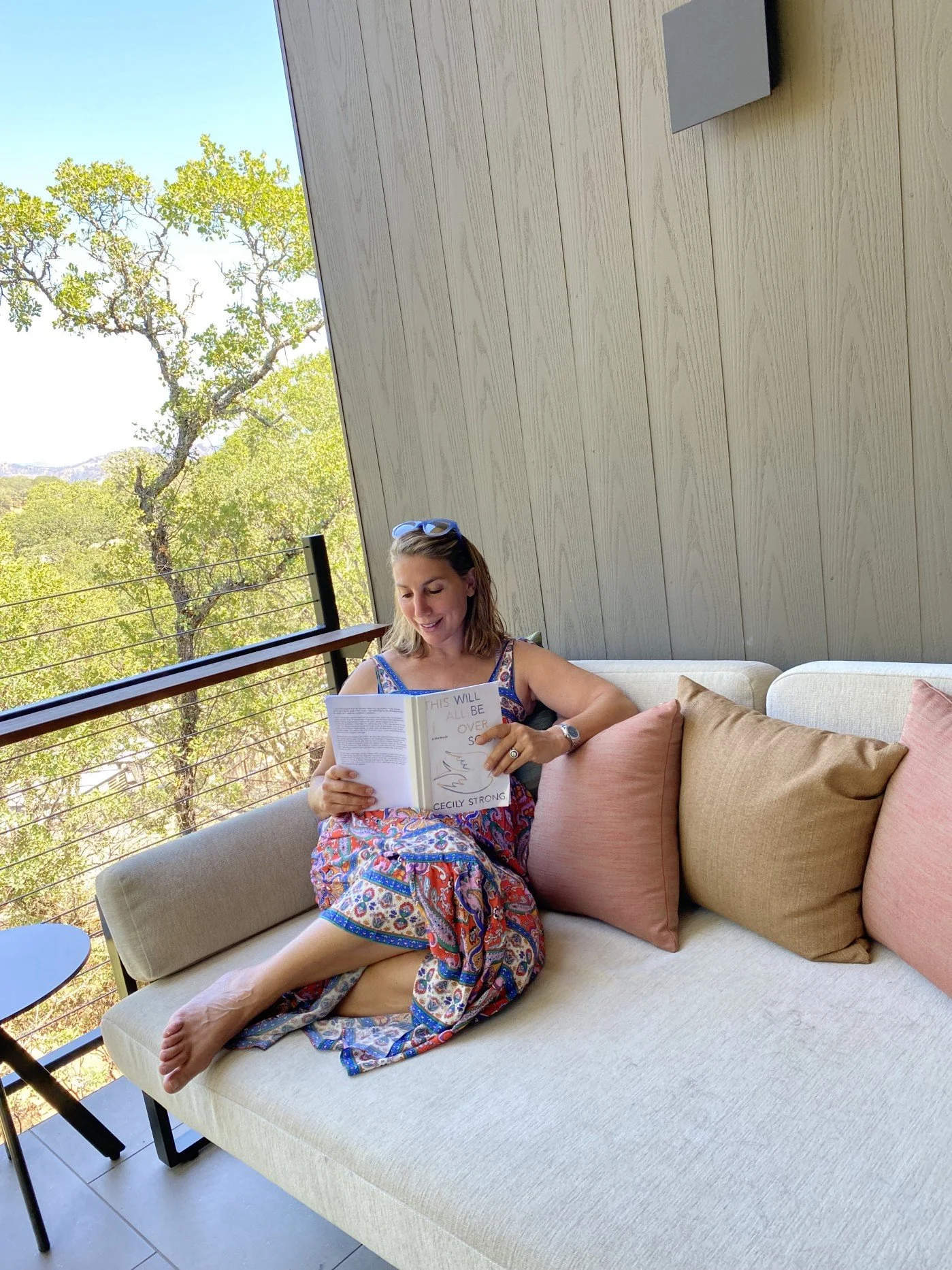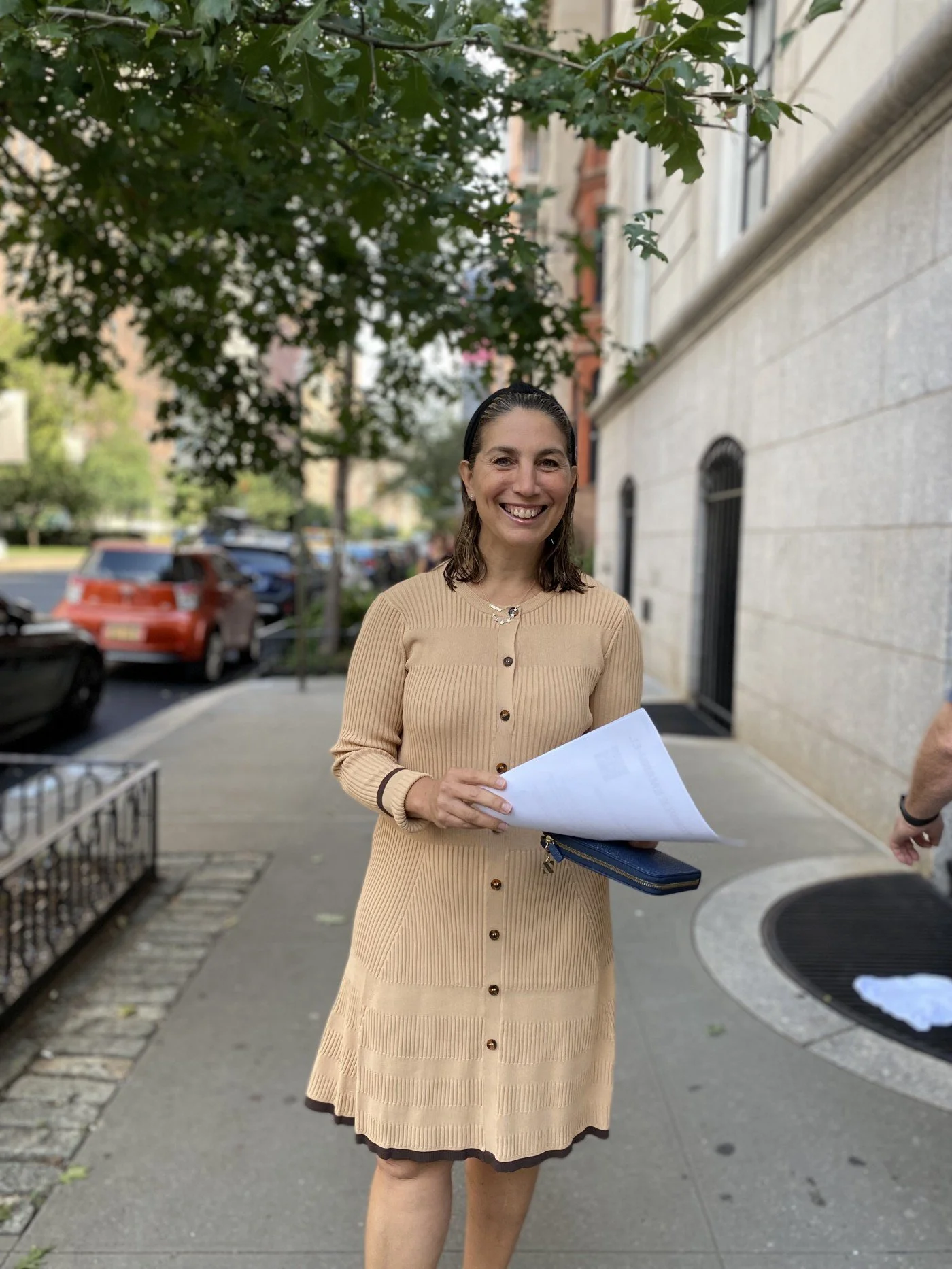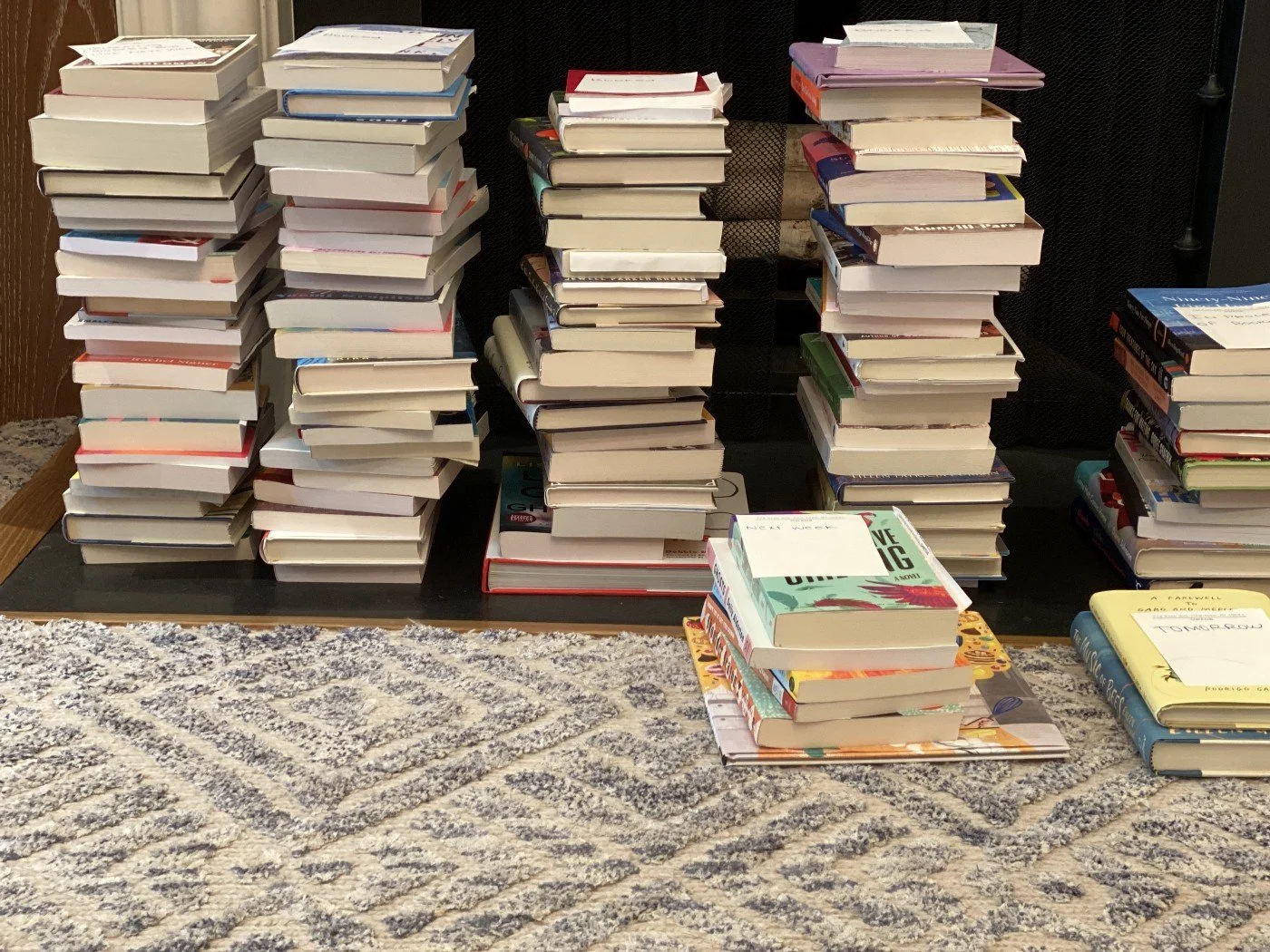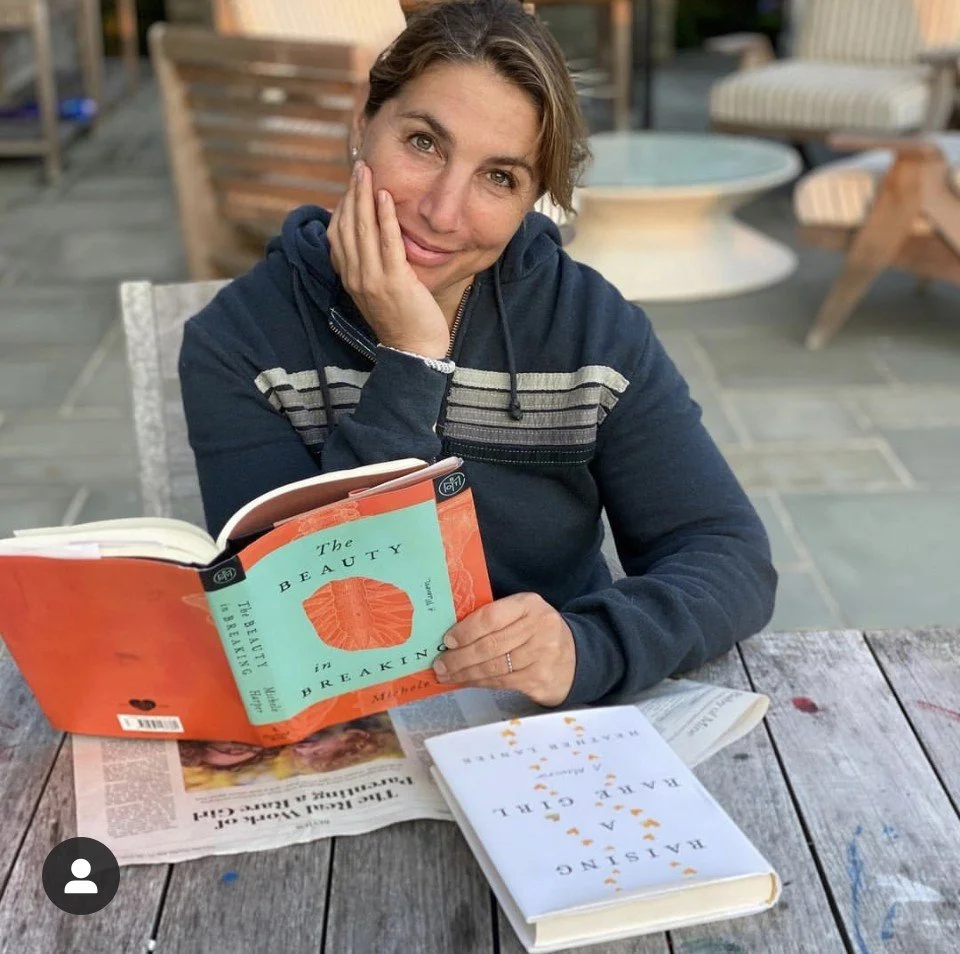Insider Publishing Advice
By Zibby Owens
20 tips for aspiring authors from a podcaster/author/publisher
Ever since I started my podcast Moms Don’t Have Time to Read Books, I’ve gotten a lot of requests from aspiring authors. Could I possibly help them navigate the publishing industry? Do I have any tips or tricks after interviewing hundreds of authors? (At the end of every episode, I always ask the authors for their advice, so at this point — after almost 900 interviews — I’ve gotten a lot of it!)
My daily author interview podcast.
Recently, since I announced the launch of Zibby Books (the new publishing company I co-founded with Leigh Newman), I’ve been inundated with requests. Friends of friends. Strangers. Instagram followers. My child’s bat mitzvah tutor’s cousin. Everyone has a book! They have an idea! Now what?! Could I please help? Read the manuscript? Would I have time for a quick coffee or call to discuss?
I truly, deeply, honestly want to help everyone. Individually. I do! I love connecting with people and hearing their stories. But I don’t have time right now. As it is I can barely find time to read all the books for my podcast, run my new business, and deal with my four kids. I’m not complaining. (Well, okay, maybe I am. A little.) This is an amazing “problem” to have. But until I can carve out time for these sure-to-be-awesome conversations, here’s some advice I can share.
First things first.
I really don’t know that much more than you do. My own publishing path has been littered with rejection letters.
Last year, I finally managed to sell the memoir that I’d been writing and rewriting for literally 18 years. I’d tried to publish it before unsuccessfully. When I asked my brother for title ideas, he said, “How about THIRD TRY?” I was lucky to find an editor because the sample chapter of my proposal wasn’t very good. I’d spent so much time on the proposal that I dashed the chapter off and barely reread it. What was I thinking!? When rejections started coming in, I decided to read it out loud to my husband. He fell asleep.
I did almost everything wrong.
But fortunately, someone — Carmen Johnson at Little A — happened to “get” me, love my brand, and took a chance. I am so deeply grateful to her. She has helped me shape my mess of a life into a coherent narrative. (It’s coming out in July 2022!)
Selling two children’s books was also a fluke. An author who had been on my podcast, Karen Dukess, asked me at an event one afternoon if I’d ever be interested in writing one. And actually I had written a few over the years — and even had an agent for one of them but it hadn’t sold. (Sense a pattern here?) Karen introduced me to her friend and neighbor who was starting her own imprint at Penguin Random House, Margaret Anastas. Margaret came over for lunch, showed me a drawing of a girl, announced her name, and then asked me: if I were writing a children’s book about her, what would the story be? Two minutes later, I told her what I’d do. She loved it. Somehow, a few weeks later I had a two-book deal. I mean, this stuff never happens!
You can pre-order Princess Charming here!
As for my two anthologies? During the pandemic, I called the one publishing house I knew of that could release books within a few weeks, Skyhorse Publishing. I told them I’d assembled the whole thing, a quarantine anthology, and had all the author contracts signed. Would they want it and could they put it out while we were all still at home? They did. And then they bought a second.
Click here to purchase!
My experience has been a mix of luck, hard work, and perseverance. But enough about me. Here are a few things I’d tell you over coffee.
1. — You know how everyone says there’s so much rejection in publishing? IT IS SO TRUE. The problem is that while sometimes books are rejected because they’re just not very good or because the author isn’t a strong writer, most of the time, the books are (or could be) really good! There just isn’t a slot at the publishing house. It’s like a plane landing without a gate available.
2. — The first thing you have to do is figure out: is my book any good and am I actually a good writer? You could be a really strong essayist but if you haven’t written a novel before, chances are you’re not going to be that great a novelist. You need to practice. Would you want to ride on a pilot’s first ever flight?! No thanks. Many people have their first novel rejected because honestly, no one should try to sell their first novel. But writers have invested so much time on their books that they feel they need to sell them, both financially and emotionally.
3. — If you want to sell a novel, you have to practice by writing a few novels. (This is coming from someone with three novels in a drawer right now.) It sounds so obvious, right? But when it takes three years to write one novel, it isn’t the advice you want to hear. I guarantee that if you write four novels in a row, your fourth one will be better than your first. And if they all still stink, you need to stage a writing intervention. So plan on writing several novels.
4. — Save your submission for when it’s the best thing you can ever write. Some authors rationalize, “Well, let me just try because it might get me a book deal.” Or, “I think it’s pretty good! Why not?!” Don’t do it. Let’s say you submit your B- work and the publisher rejects you. If you come back in a year or two with another book, a better one, the publishers may not give you another chance. Why get off on the wrong foot?
5. — Publishing is a much smaller world than I ever thought it was. I’m embarrassed running into editors now at events knowing they’ve rejected multiple books of mine. It’s like hooking up with someone freshman year of college and then realizing you’re still in class with them for years afterwards. And 30 years later, your kids are going to school together, too.
6. — Having only been a publisher myself for a couple weeks, I can already tell you that most books we get pitched will be rejected. It’s just a numbers game. We only publish twelve books a year. If we have one addiction memoir that year, we probably won’t take another one. That doesn’t mean YOUR addiction story isn’t amazing. It probably is! But our slot is filled. (And who knows? Maybe we’re the ones who made a mistake!) What does that mean? Go searching for other slots at different publishing houses.
7. — Don’t take it personally. Ask for feedback from the publishers. If you get the same feedback from several places about your writing or the content of the book, then you should probably listen to it. Have a long list of submission places ready to go. I submitted my memoir to almost 50 publishers. You only need one to say yes. (Would I have preferred an auction and bidding war? Yes. But it’s fine. I’m over it. Sort of.) Remember, even many of the best, most prolific, bestselling authors have had dozens of manuscripts rejected.
8. — It’s like shopping for clothes. Does the first dress you try on usually fit? (Well, it doesn’t usually fit me, that’s for sure.) I need to bring in around 10 dresses. First the thing just has to zip. If it actually fits, does the color look good?! How about the style? Do I have anywhere to wear it? The discarded dress on the fitting room floor shouldn’t feel bad about itself. Another shopper will likely take it home at some point. Not every dress is right for every body. Now, if no one ever buys the dress, maybe the dress is terrible. But just because it only appeals to a certain group of, say, tall thin women who look good in fuchsia, doesn’t make it a bad dress. Same for your book.
Dress by Shoshanna. Who is writing a book for us!
9. — How do you know if you’re a good writer or if your book is actually good? You have to show your work to other readers and writers. Really. Join a writing group. Ask someone you know who reads all the time. Let the moms in your kids’ class read it. Show it to anyone you know who would be in the target audience and ask for honest feedback.
10. — Confession: while I’ve always lacked confidence in some areas — and probably for good reason, I’ve never doubted my ability to write. Pouring my thoughts onto the page through my fingertips onto the keys (haha, that’s such terrible sentence construction!) is something I instinctively know how to do. But guess what? I’ve gotten a lot better lately. This article notwithstanding. How? I’ve read HUNDREDS of books. I’ve spoken to hundreds of authors. I’ve written daily on Instagram, weekly on Medium and other platforms. You can always improve. Even if you think you’re the best. And you will get better if you practice. Even the best authors in the world tell me how embarrassed they are by some of their first books. Even if they’re bestsellers! So show your work. If you’re afraid to show it to people now, you probably shouldn’t be trying to publish it.
11. — Read a lot. Analyze the books you’re reading. The structure. The tone. What you like and don’t like. What do the bestsellers have in common? What are some of your favorite books? Why? Think about it analytically not emotionally. After reading so many books, I’m a sucker for a clever structure. The first sentence of each chapter does really matter. Long paragraphs of text without any quotes? I feel overwhelmed. Figure out what you like. Reading is also a skill that can be improved. You can get faster the more you read. I have!
12. — Also, before you submit anything anywhere, even onto a random blog, reread it several times. Spell check. Read it out loud to a close friend or partner. Hear it in your head. Make sure it flows. Catch the mistakes. Then, cut 100 words. That always makes it better.
13. — Yes, you should get a literary agent. Invest the time up front. How? Ask anyone you know who has an agent for an introduction. Research literary agencies online and submit to the slush pile. Figure out who some of your favorite authors’ agents are and pitch them. Do so in an informed way. You don’t have to have an agent to sell a book. But if you don’t, there’s a higher likelihood that your book will end up being self-published. Which is also fine! Think about it. If you’re a publisher getting 100 submissions and 50 are from authors who have agents and 50 are from authors who don’t, which pile would you want to read first? It’s because the agents, typically, have worked with the authors to polish their manuscript, hone their list of publishers to pitch, and have picked you for a reason.
14. — At Zibby Books we’ve bought a number of un-agented manuscripts and will continue to because finding a diamond in the rough is an amazing and fun endeavor, as is telling someone, “You should write a book!” And then commissioning them to do it. But that rarely happens. Most the time, the sheer fact that you got an agent is a short-cut communication signaling to publishers that it’s pretty good. It helps your manuscript get read and taken seriously. You need someone who is in your corner. Then you can take your agent out to coffee and ask him or her the eight million questions you have for me. (Haha.) That’s part of the process. You won’t feel quite so alone.
15. — How do you know if your idea is worth writing about!? That always strikes me as a slightly odd question. How can you know if it’ll be good until you do it? It’s like baking cookies. I have an idea that adding both milk and dark chocolate chips to a Tollhouse cookie recipe will taste great. It might. But you know the fastest way to find out? It isn’t asking 100 people if they think it’ll taste good. It’s just baking a batch of cookies and tasting them.
16. — Writing is an act of passion. It comes from a desire to be seen, to tell stories, to connect and communicate, to process and move on. Ideas for entire books are so vague. No one can possibly know, even if you describe it, what their experience of reading your idea will be like. So just write the book. Start with one chapter. Do you want to keep going? Chances are if you’re bored writing it, readers will be bored reading it. The best advice is to write something you want to read yourself. Because trust me. You will be rereading and editing and rewriting and rereading this thing for a long, long time.
17. — Oh, yes, you should write a book proposal. Google how to do it. Proposals have standard elements. Some of the most important? The description of what your book is about. You need a 1–2 sentence “elevator pitch.” You also need some “comps.” Which book is yours most like? Try to pick a few recent ones. Know your market. Be aware of what’s out there.
18. — Do you need a “platform?” It helps. Everything helps when trying to convince strangers to dedicate hours and hours of the time they don’t have to reading your innermost thoughts or alternative realities. But a platform doesn’t have to be fame. It can be any type of community. Your bowling league. You must have some network. If you have no friends and no community to fall back on, well, hmm. That might be another issue.
19. — Publishing is emotional. I can’t explain the number of times I’ve cried on the bathroom floor after being rejected. And then, somehow, you find the right person who believes in you and loves your story and then you get a book deal! But you need to love the process, too.
20. — Yes, it’s a risk. Spending months or years on a project without any sort of guarantee is frightening. But you know what that project isn’t? A waste of time. It’s essential time. You’ve made progress. You’ve done something you set out to do. We all only get one shot. If writing a book is something that you know deep in your soul you need to do, do it. Try it. Then, try it again. Selling the book to a publisher may happen. It may not. But that shouldn’t be why you do it. Do it because you love it. Do it because you need to do it. Because you must. And if you don’t feel that sense of compulsion from deep inside, then please, do something else.
To summarize: Practice writing of all types. Read everything. Improve. Work on your skills. Show your work to other readers, not just your ideas. Write because you need to. The first book is supposed to be a practice run, so don’t feel bad if you get rejected. Keep at it. Identify what your unique “platform” really is. And remember, if you can’t sell to a publisher, self-publishing is a fantastic option, too. The fact that you’ve written a book at all — and finished it! — is an accomplishment.
I hope that answered your questions. If you have more, comment below! (And if you want to submit a completed manuscript or proposal to Zibby Books, fill out the form here.)
Now stop reading articles about how to get published and go write something beautiful already!


